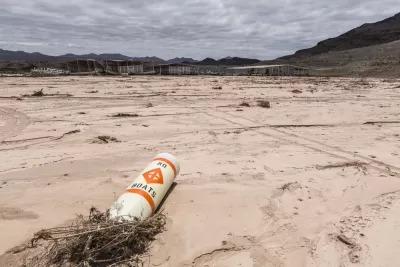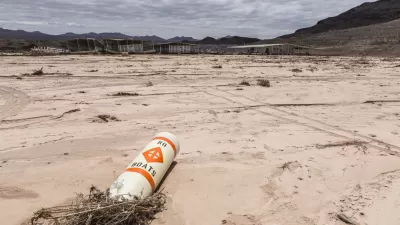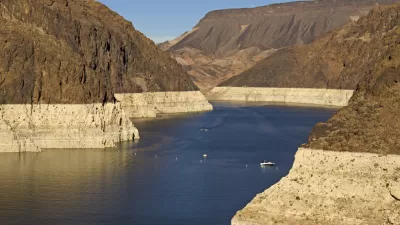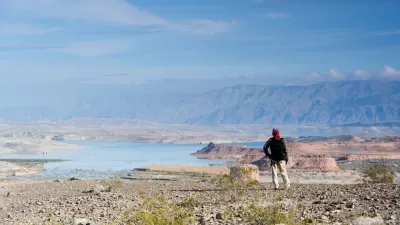Two case studies exemplify the extreme economic and legal pressures surrounding water supply in the state of Arizona.

"Serious water shortages on the Colorado River could be less than two years away, according to new federal estimates," according to an article by Matt Weiser.
"Yet after 19 years of drought, just 500 farmers in one Arizona county may decide the fate of the entire Southwest: By holding tight to their own temporary water supply, they could stall a conservation plan designed to save the entire region from water shortages."
The article focuses on Pinal County, the 54th-largest farming county in the country and the third largest in the state, where about 540 farms use irrigation delivered via the Arizona Water project, a 336-mile canal built by the U.S. Bureau of Water Reclamation in 1993 to divert water from the Colorado River.
"Under a proposed drought contingency plan (DCP) aimed at saving Arizona residents from severe water shortages, Pinal County farmers could lose access to all their Colorado River water," reports Weiser.
Although the local irrigation districts and farmers are fighting the decision, Weiser says preventing the DCP will only prolong the inevitable—the farmers will run out of water in 12 years because of the temporary water deal the irrigation districts signed in 2004. It turns out, the Pinal County farmers are the most "junior" users of the Colorado River.
The Pinal County case isn't the only Arizona water news to catch our attention this month. A separate article by Bret Jaspers shifts the action to Maricopa County, where a water rights dispute known as the Gila River General Adjudication has dragged on since the 1970s. "Through the adjudication process, [a Maricopa County Superior Court] judge will decide on claims to water from several Arizona rivers – or water pumped from wells close to the rivers."
The reason for the dispute reveals another key aspect of water rights in Arizona, which is that only a few areas have long-term deals for water. In 1980, Arizona designated five Active Management Areas – Prescott, Phoenix, Pinal, Tucson and Santa Cruz – that are heavily reliant on the mining of groundwater. Each AMA pursues a goal of stabilizing water tables under the Arizona Groundwater Code," writes Jasper. Without an AMA, there's little certainty about where water will be delivered. That arrangement is constantly pressure by the state's ongoing growth.
FULL STORY: Why One Arizona County Could Upend the Southwest’s Drought Plan

Trump Administration Could Effectively End Housing Voucher Program
Federal officials are eyeing major cuts to the Section 8 program that helps millions of low-income households pay rent.

Planetizen Federal Action Tracker
A weekly monitor of how Trump’s orders and actions are impacting planners and planning in America.

Ken Jennings Launches Transit Web Series
The Jeopardy champ wants you to ride public transit.

Crime Continues to Drop on Philly, San Francisco Transit Systems
SEPTA and BART both saw significant declines in violent crime in the first quarter of 2025.

How South LA Green Spaces Power Community Health and Hope
Green spaces like South L.A. Wetlands Park are helping South Los Angeles residents promote healthy lifestyles, build community, and advocate for improvements that reflect local needs in historically underserved neighborhoods.

Sacramento Plans ‘Quick-Build’ Road Safety Projects
The city wants to accelerate small-scale safety improvements that use low-cost equipment to make an impact at dangerous intersections.
Urban Design for Planners 1: Software Tools
This six-course series explores essential urban design concepts using open source software and equips planners with the tools they need to participate fully in the urban design process.
Planning for Universal Design
Learn the tools for implementing Universal Design in planning regulations.
Heyer Gruel & Associates PA
Ada County Highway District
Institute for Housing and Urban Development Studies (IHS)
City of Grandview
Harvard GSD Executive Education
Toledo-Lucas County Plan Commissions
Salt Lake City
NYU Wagner Graduate School of Public Service





























